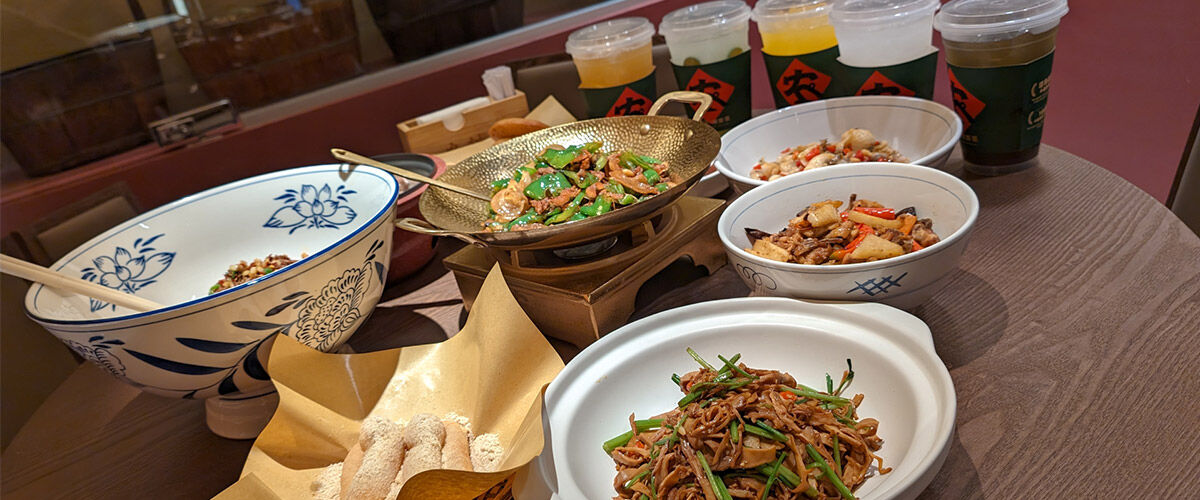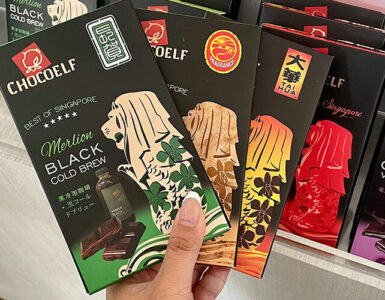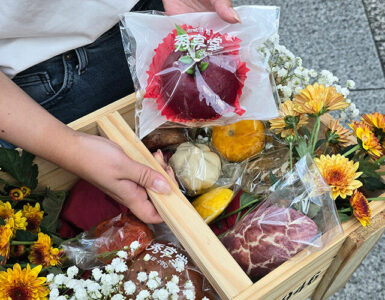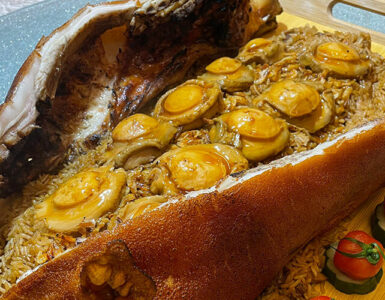Nong Geng Ji arrived in Singapore with much fanfare back in October 2023, along with plenty of hot (spicy!) reviews, so to no one’s surprise and to meet our many hungry bellies, the restaurant chain has opened its second outlet at VivoCity. Founded in 2017, Nong Geng Ji has grown into a well-known Hunan cuisine chain in China, with over 100 stores, and Singapore marks its first expansion outside of its home country!
Geek fact #1: There are eight popular cooking traditions in Chinese cuisine known as the Eight Great Cuisines. While they do not cover the entirety of China’s vast culinary map, they have been identified by Chinese chefs as the most prominent and popular. Hunan cuisine also known as Xiang cuisine, is one of the eight.
Known for its hot, sour and dry spice flavours, Hunan cuisine is famous for its stews, braises and stir-frys.
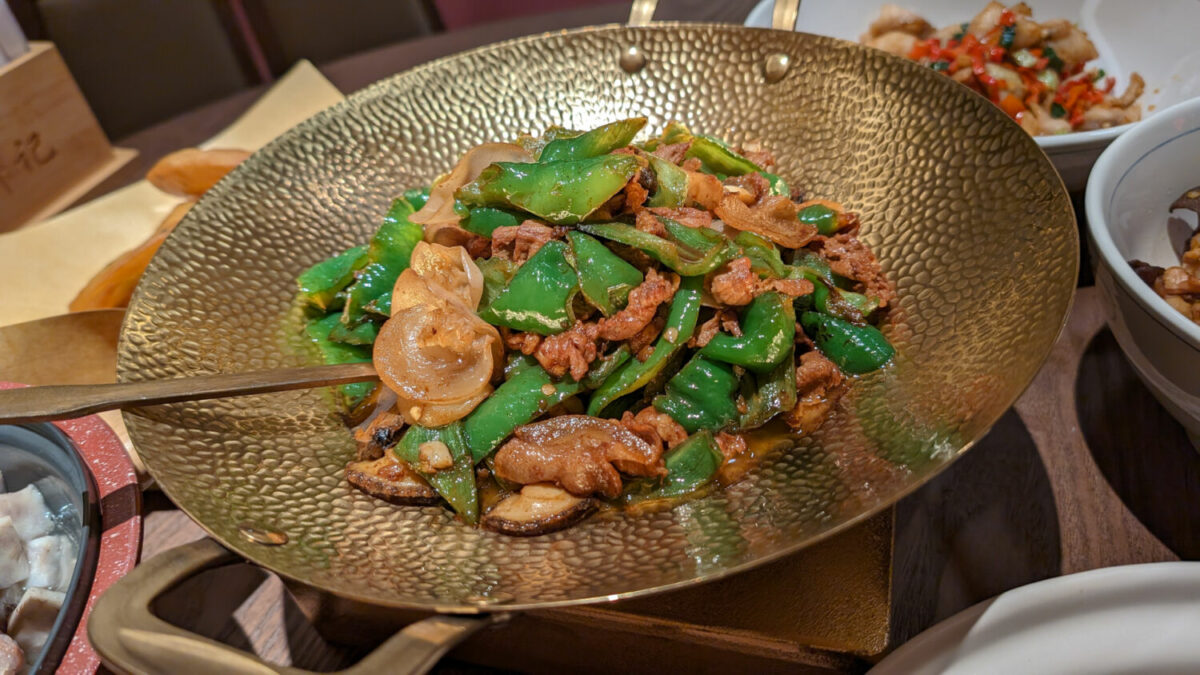
A signature dish is stir-fried pork and at Nong Geng Ji, they put their own spin to it by adding plump baby abalones. Asian surf and turf perhaps? The Stir-Fried Pork with Abalone and Chilli (鲍鱼辣椒炒肉, $27.90) comes with some heat but the juicy and tender-licious pork slices will have you reaching in for more. This dish comes served in a wok with a burner, which ensures that the dish is kept warm throughout and for good reason! You would want to drizzle (or drown) your rice with that flavourful sauce.
Geek fact #2: Hot peppers like chili and cayenne contain a compound called capsaicin, whether they’re fresh or dried. Capsaicin is responsible for most of the heat/spiciness we feel when eating. Since capsaicin is considered an alkaline oil, sometimes acidic ingredients like lemon or rice wine vinegar are added to help counter the spice!
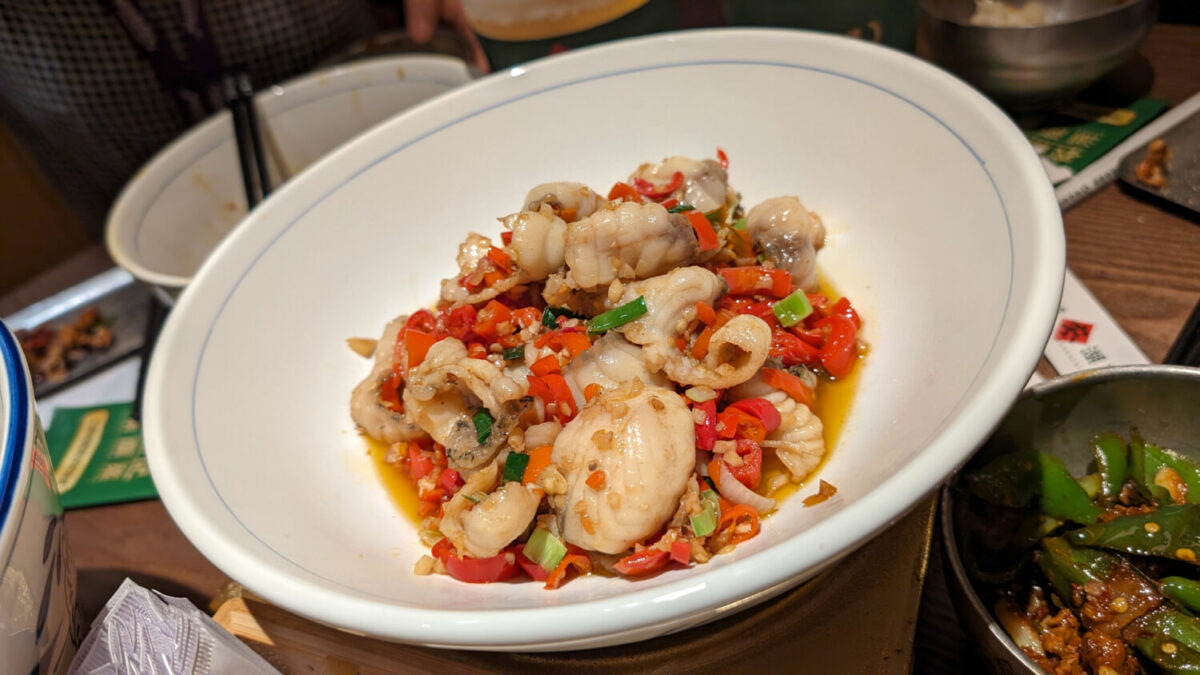
As the province sits along a river, fresh fish is also a key ingredient in Hunan cuisine. The Signature Grass Fish Fillet with Chilli (招牌湖蝶鱼, $25.90) is such a treat as grass fish, a type of carp, is used in this dish. Its unique chewy texture adds another dimension to this dish as you dig in with the pickled chili sauce. Committed to only using quality ingredients, a whole fish is filleted for guests, instead of using fish slices. Not to be confused with Chong Qing grilled fish, Hunan cuisine does not use peppercorns unlike Szechuan dishes, so this will pack the heat but not give you that numbing sensation. For those who can’t handle the heat, there is a non-spicy version available.
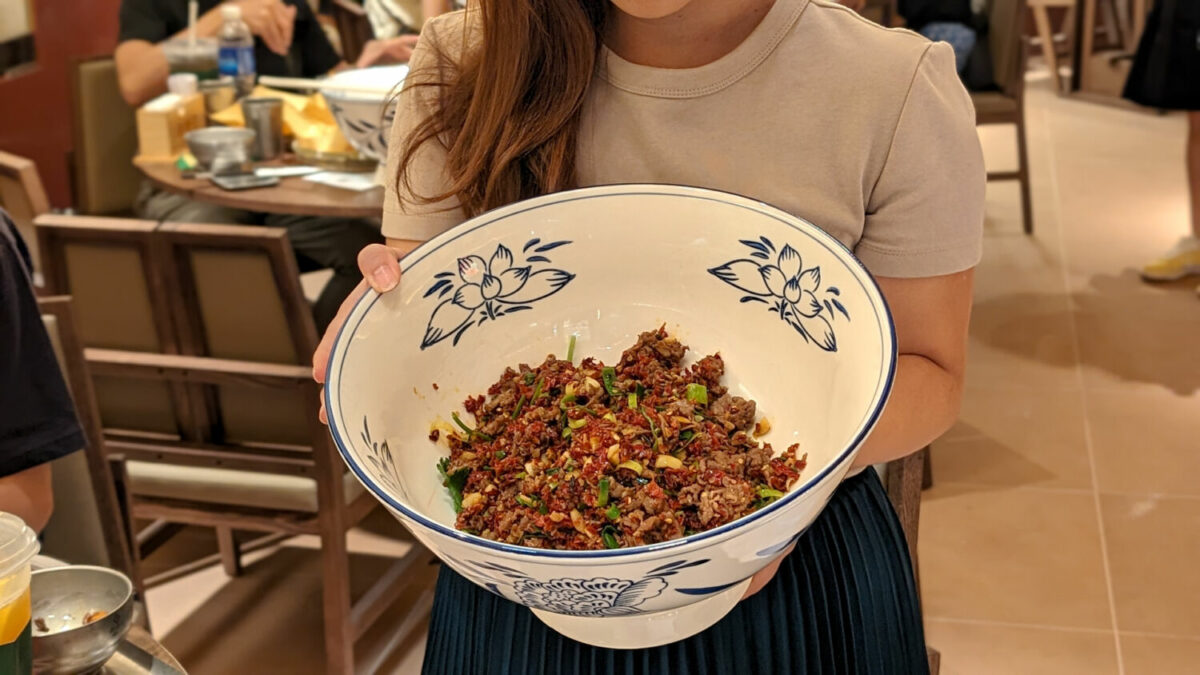
If fish and pork are not your flavour of the moment, check out their Stir-Fried Beef with Fried Chilli (皱皮辣椒炒牛肉, $28.90). While the English name is similar to the earlier pork dish, the Chinese term is different and this dish uses dried peppers, with thinly sliced beef slices to give it a mix of bite with its crispy edges. The dried peppers used are specially imported from Hunan as well! Check out the size of the bowl!
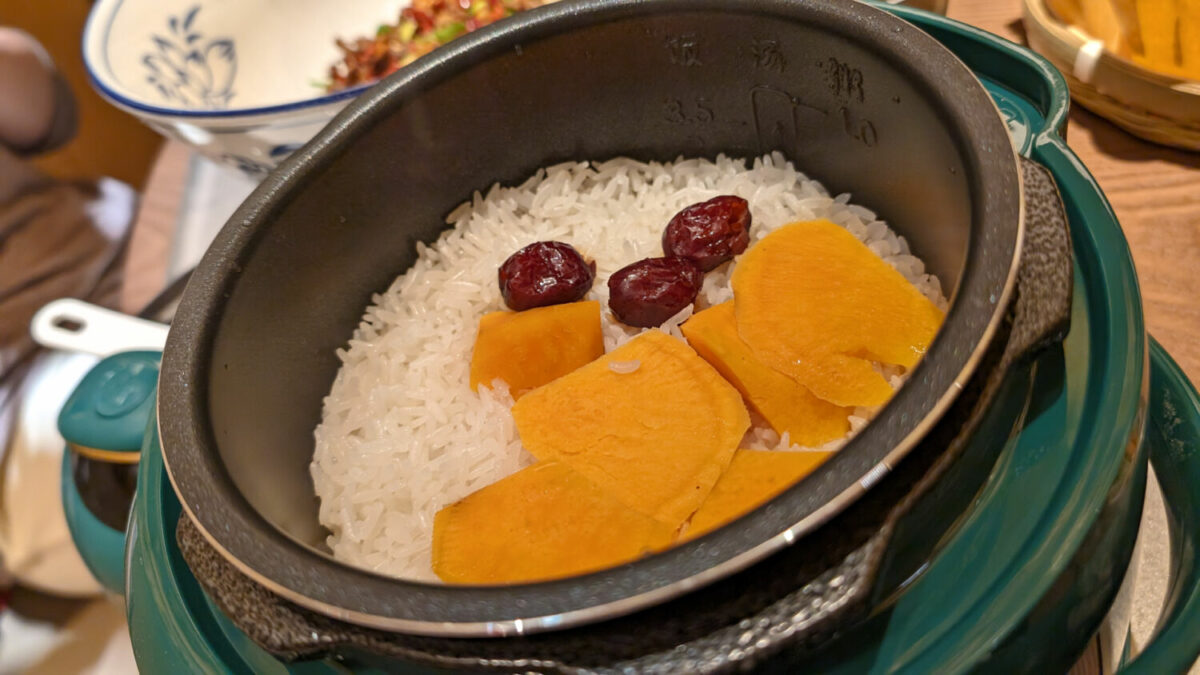
We mentioned their rice earlier and this is anything but plain as the grains are cooked in a mini pressure cooker, making the Wuchang Steamed Rice with Sweet Potato and Red Dates (高压锅红薯饭, $7.90) the perfect complement for the dishes. It is fragrant and slightly sweet, due to the dates, which helps mellow some of the heat from the spicy dishes. We have not seen rice with these added ingredients at other restaurants serving Hunan cuisine, so this is a must-order here at Nong Geng Ji! One order is sufficient for a group of 4 to 6 diners.
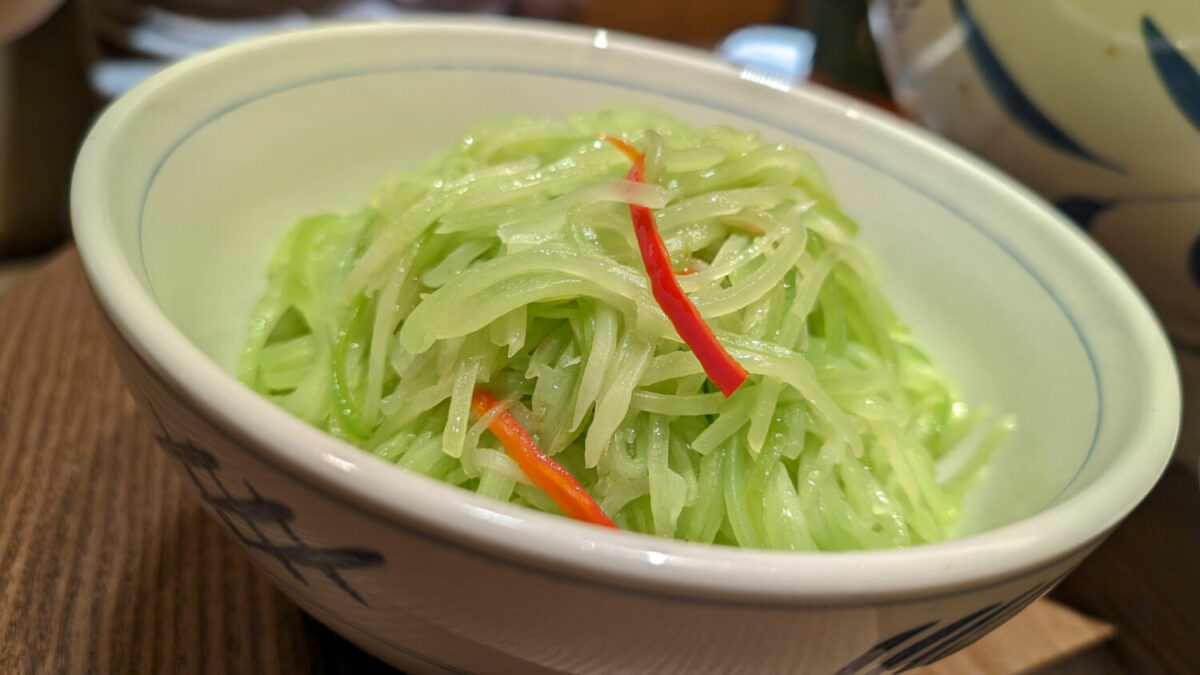
A balanced diet is key, so for your daily greens, opt for the Stir-Fried Shredded Stem Lettuce (清炒莴笋丝, $11.90). Stem lettuce, also known as celtuce, is a popular vegetable in Chinese cuisine and only the stems are used in this dish, which can be best described as a mix of the freshness of a cucumber, with the crunchiness of bamboo shoots.
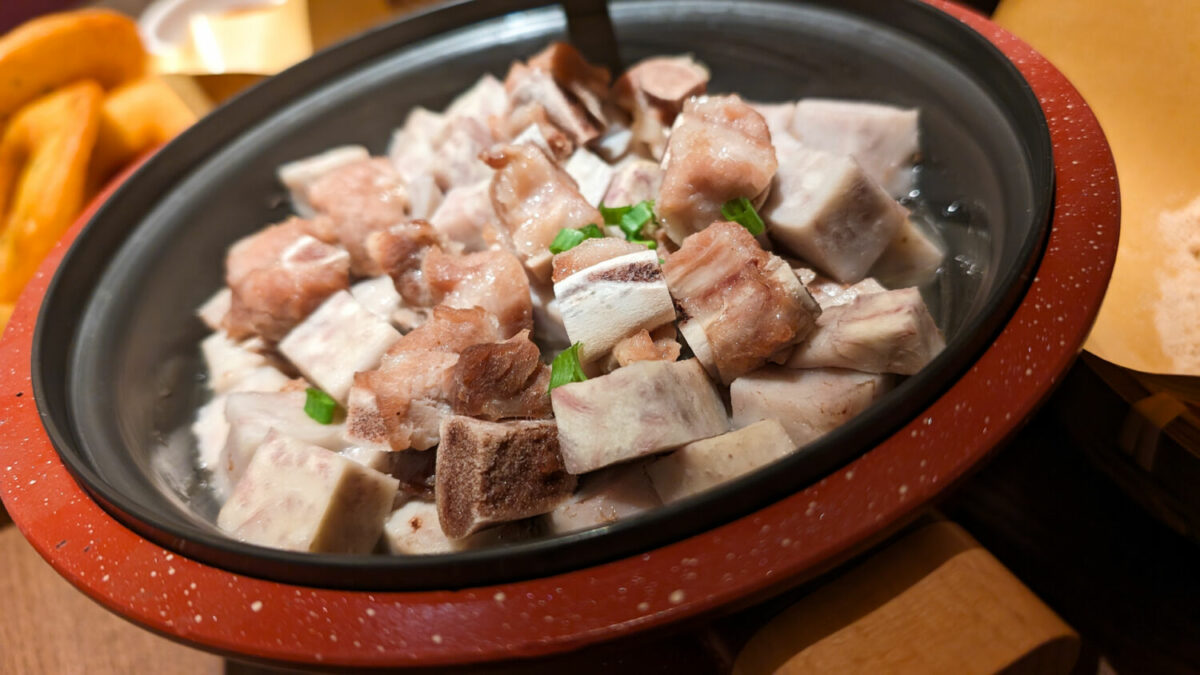
The Steamed Pork Ribs with Taro (香芋蒸排骨, $18.90) can also help balance the taste buds after all that spice. In this non-spicy dish, the taro absorbs some of the oil from the pork ribs as it cooks, making the meat less oily, while enhancing the taste of the taro at the same time. If the combination seems weird, do remember that the iconic Teochew taro dessert, orh-nee, is basically steamed taro mashed with lard oil. This preparation method not only drains the oil, but helps the taro absorb the fatty oils that make the taro pieces worth biting into.
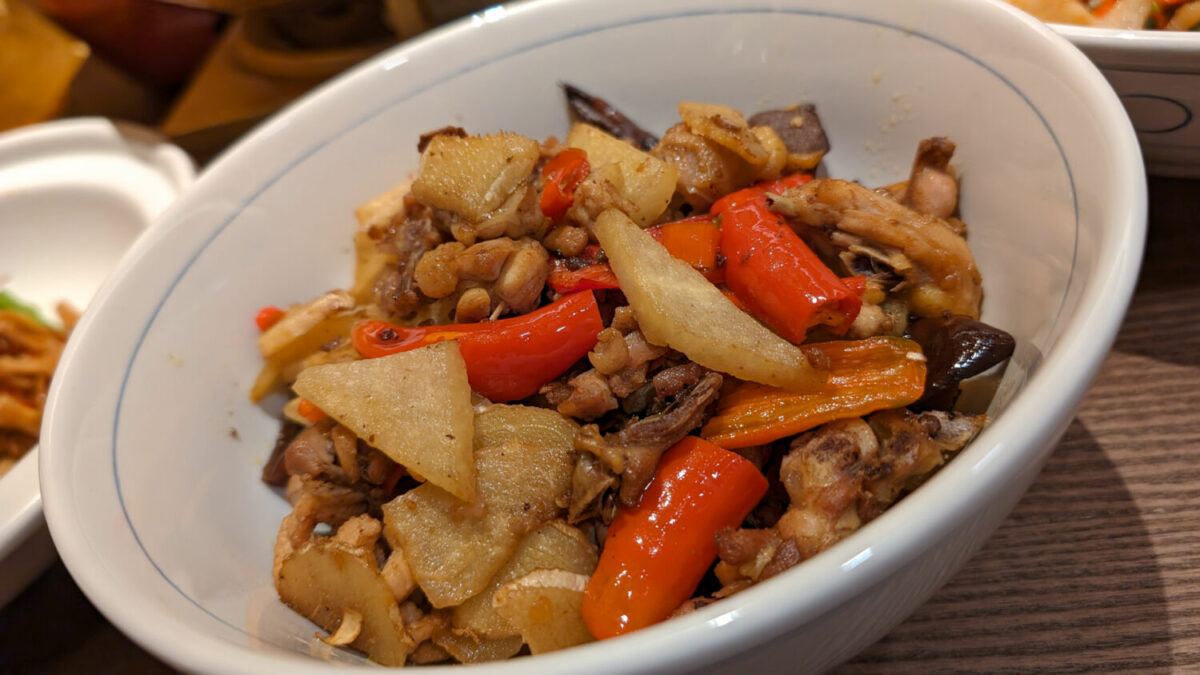
At the Vivocity outlet, there is an exclusive dish – Tea Oil Stir-Fried Kampung Chicken (茶油炒甘榜鸡, $23.90), which is equal spicy equal herbaceous. Originating from Hengyang region, Hunan province’s second largest city, the tea oil and chili work in perfect symphony, paired with tender chicken bits. Think of this as a more “herbaceous” version of sesame oil chicken which many of us would be familiar with.
Geek fact #3: Tea oil has a high smoke point, and also carries natural health benefits and the same antioxidants found in green tea — which stay put, even after cooking at high temperatures, according to researchers.
On the menu, each dish comes with a “heat indicator” – not spicy, slightly spicy and spicy, making ordering clear and simple. Beverages are generous, coming in 1L cups. The Signature Lemon Tea does help slightly combat the heat in the dishes.
Summary: Explore the many facets of Chinese cuisine, go beyond Szechuan, Shanghainese, Cantonese dishes which are widely available in Singapore. Nong Geng Ji may promote home-styled cooking but there is nothing humble about the flavours. The Stir-Fried Pork with Abalone and Chilli and Wuchang Steamed Rice with Sweet Potato and Red Dates take top spots here at GC – perhaps due to our secret love for rice and sauce (think curry vegetables with extra gravy and rice, hoisin sauce and rice, and even gochujang in bibimbap)!

